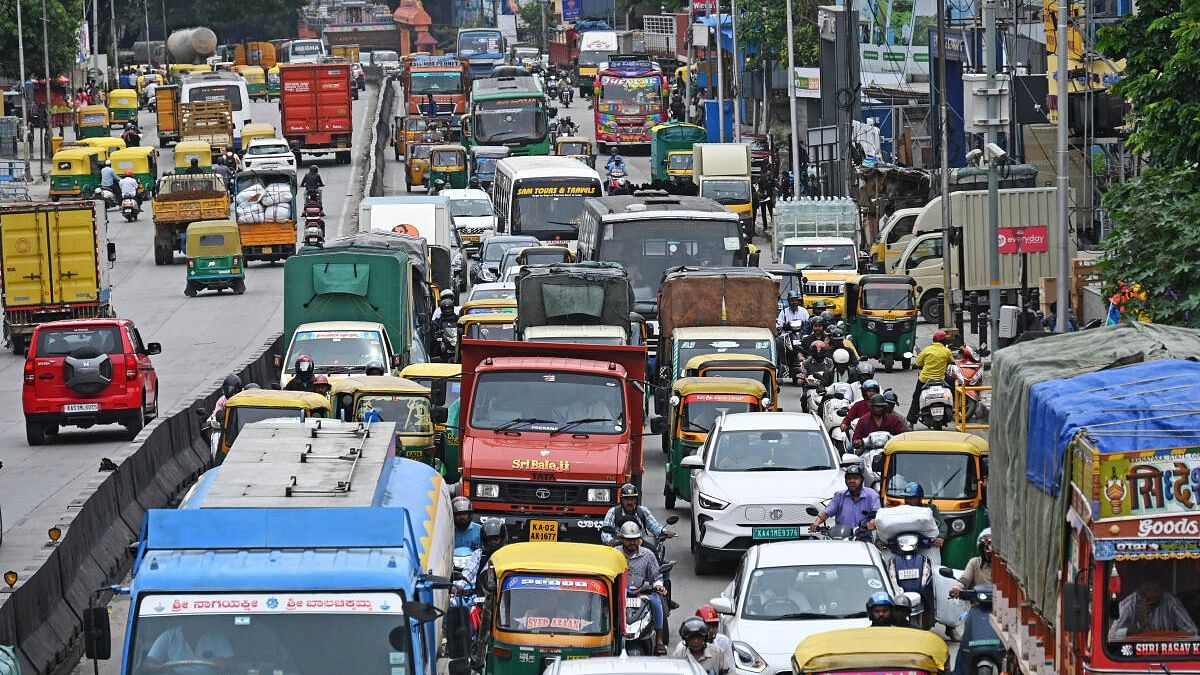
Slow-moving traffic crawls on Mysuru Road in Bengaluru on Monday, July 22, 2024.
Credit: DH PHOTO/PUSHKAR V
Bengaluru: The BBMP's feasibility report on decongesting Bengaluru reveals that the average traffic speed in the city has dropped to 15 km/h.
The report proposes a network of 54.5 km of tunnel roads crisscrossing the city, with a projected cost of Rs 32,700 crore, translating to Rs 600 crore per kilometre of tunnel.
Mobility experts are sure to oppose the plan as car-centric projects have a less shelf life as compared to public transport solutions.
The project is divided into two main corridors: the north-south corridor connecting Esteem Mall (Hebbal) to Silk Board, and the east-west corridor running from KR Puram to Mysuru Road via Ulsoor, Richmond Circle and Town Hall.
The feasibility study, prepared by New Delhi-based Altinok Consulting Engineering Inc at an estimated cost of Rs 5.54 crore, suggests two types of tunnel designs — a single tube with two decks and a twin-tube method similar to those used in the metro projects.
The report references three twin-tube projects in Maharashtra, including stretches between Thane and Borivali, and between Princess Street Flyover and Priyadarshini Park in Mumbai.
The report notes, “City roads have exhausted their lane capacity. Due to heavy built-up areas and high land prices, widening is no longer feasible.”
In addition to the tunnel roads, the report suggests elevated corridors in areas such as Nagawara-Bagaluru Main Road (10 km), Marenahalli Main Road (10 km), and Hosur Road (5.5 km).
The BBMP has engaged an additional consultant to prepare a detailed project report (DPR) for the tunnel roads. The first phase is expected to focus on an 18.21 km stretch between Esteem Mall and Silk Board, featuring five entry and exit points (Palace Road, Golf Club, Race Course, Cubbon Park, Lalbagh Botanical Garden).
Deputy Chief Minister DK Shivakumar explained to the MLAs last week, “Widening existing roads is challenging due to land scarcity and acquisition issues. Therefore, the state government has decided to address traffic congestion by constructing underground tunnels.”